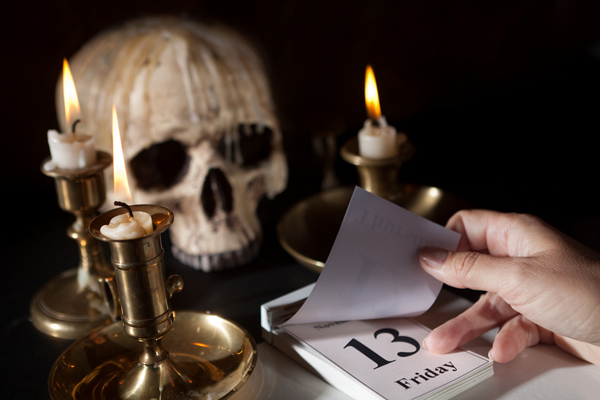What's the Origin of Friday the 13th?

Get the world’s most fascinating discoveries delivered straight to your inbox.
You are now subscribed
Your newsletter sign-up was successful
Want to add more newsletters?

Delivered Daily
Daily Newsletter
Sign up for the latest discoveries, groundbreaking research and fascinating breakthroughs that impact you and the wider world direct to your inbox.

Once a week
Life's Little Mysteries
Feed your curiosity with an exclusive mystery every week, solved with science and delivered direct to your inbox before it's seen anywhere else.

Once a week
How It Works
Sign up to our free science & technology newsletter for your weekly fix of fascinating articles, quick quizzes, amazing images, and more

Delivered daily
Space.com Newsletter
Breaking space news, the latest updates on rocket launches, skywatching events and more!

Once a month
Watch This Space
Sign up to our monthly entertainment newsletter to keep up with all our coverage of the latest sci-fi and space movies, tv shows, games and books.

Once a week
Night Sky This Week
Discover this week's must-see night sky events, moon phases, and stunning astrophotos. Sign up for our skywatching newsletter and explore the universe with us!
Join the club
Get full access to premium articles, exclusive features and a growing list of member rewards.
Although Friday the 13th now brings to mind superstitions about bad luck and images of a hockey-mask-wearing, machete-wielding Jason Voorhees, the fear over the day stems from ancient mythological and religious beliefs.
The dread and avoidance of the number 13 can be traced back to ancient Rome, where the number was associated with death, misfortune and destruction. Christian religious beliefs further cemented the number's reputation , stating that Judas, who later betrayed Jesus, was the 13th person at the Last Supper.
Friday the 13's unlucky reputation is twofold; not only is the number 13 considered unlucky , but the day itself was deemed as unfortunate by early Christians because they believed that Christ was crucified on a Friday.
Christians also believed that the number 13 is associated with witchcraft. It was rumored that covens consisted of 13 witches, a number chosen to mock Jesus and the apostles. Furthermore, Christians believed that witches conducted their sinister rituals during full moons, of which there are about 13 in a year.
Whatever the origin, by the late Middle Ages, both Friday and the number 13 were considered bearers of misfortune, with twice as much bad luck when they fell on the same day. Today, the day is dismissed as an old superstition , but its stigma lingers on. According to the Stress Management Center and Phobia Institute in Asheville, N.C., an estimated $800 million to $900 million is lost in business every Friday the 13th due to fears of the doomed day.
Which makes sense. Would you plan on buying a new car, going bungee jumping or getting married on Friday the 13th? We didn't think so.
Follow Remy Melina on Twitter @RemyMelina
Get the world’s most fascinating discoveries delivered straight to your inbox.
 Live Science Plus
Live Science Plus










